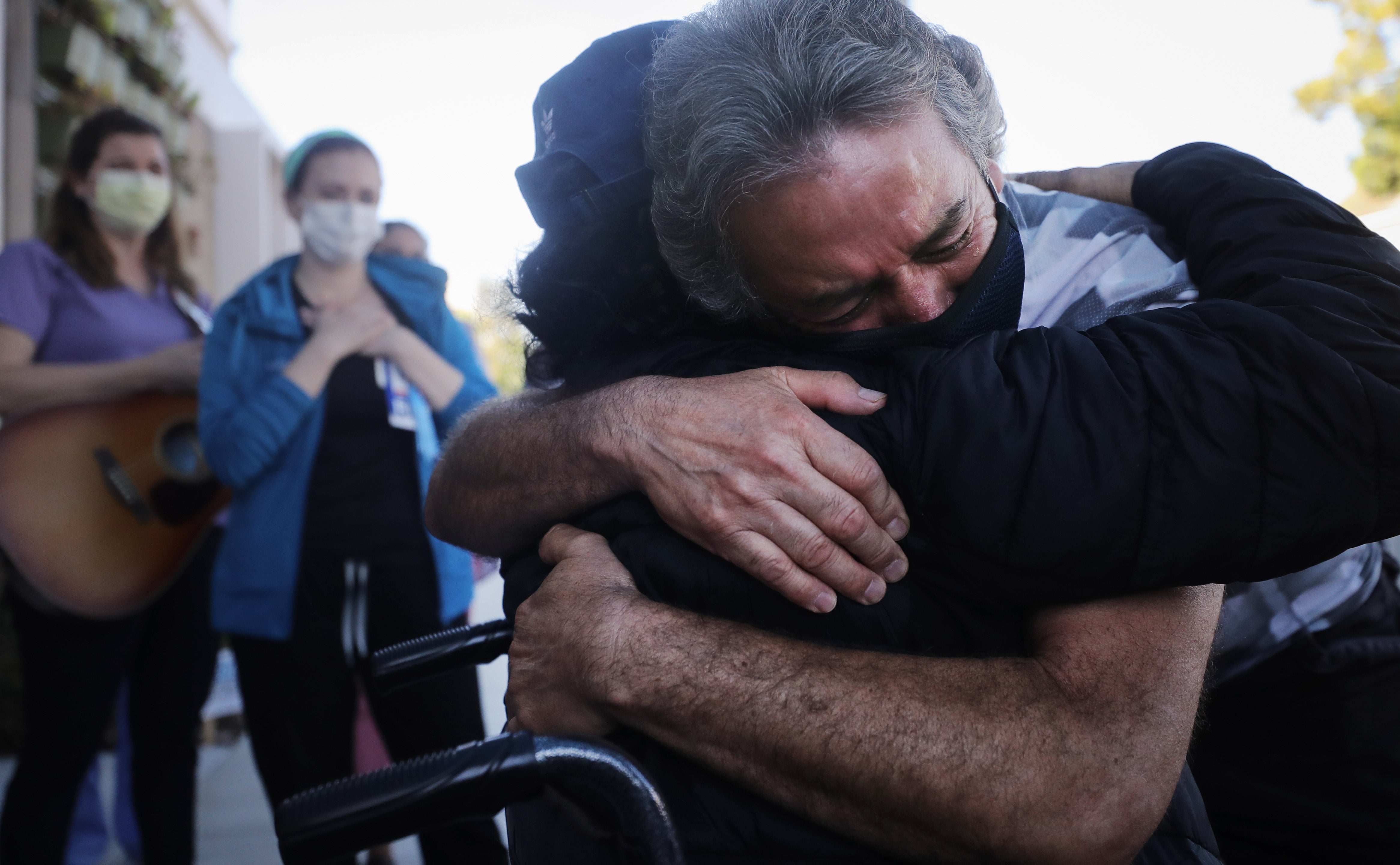Women more likely than men to spot signs of prostate cancer, poll suggests
The majority of men said that they did not know the symptoms of prostate cancer to look out for

Nearly half of men have no idea where the prostate is, according to a poll.
A study of 2,000 adults found 78 per cent of men are also unaware of the physical symptoms which could indicate an issue.
In fact, women are 27 per cent more likely to know the signs to look out for, and a third (34 per cent) of the men who have received a prostate cancer diagnosis admitted that it was their partner who raised the alarm.
Another 35 per cent said their partner was the one who persuaded them to go and visit the doctor.
But it’s not just partners, as 39 per cent of men who have received a prostate cancer diagnosis said it took seeing someone they knew being diagnosed, to motivate them to see a doctor themselves.
The survey, commissioned by cancer care provider GenesisCare and charity Prostate Cancer Research ahead of Men’s Health Awareness Month also found 49 per cent admit they tend to ‘bury their head in the sand’ when it comes to health-related matters.
And although 86 per cent are aware that an early cancer diagnosis can be lifesaving, 36 per cent have delayed seeking health advice, which has contributed to health anxiety.
Dominic Littlewood, TV presenter and prostate cancer survivor said: “Before I was diagnosed with prostate cancer, I had very little knowledge about the prostate or the signs that may mean something is wrong.
“I now know just how important is to be informed, as if my doctor hadn’t happened to spot a high PSA level for me when checking for something else, my experience could have been very different.
“This research has shown us that men’s reluctance to see a doctor isn’t just a stereotype.
“I hope reading this will encourage men to take control of their health and if they have any concerns, see a GP.”
The study also found 81 per cent of men have concerns about their health, with a cancer diagnosis coming out as the top worry (22 per cent), and prostate cancer among one of the most feared types (10 per cent).
Men lack confidence when it comes to seeing a doctor too, with 28 per cent uncomfortable asking medical professionals questions or discussing symptoms.
While 43 per cent of those polled via OnePoll don’t like to ask questions about the treatment options available to them.
This is due to finding it intimidating (38 per cent) and worrying they won’t be able to explain what they mean (27 per cent).
But almost one in 10 (seven per cent) didn’t feel the need, as they think “all cases will be treated the same” – although, the appropriate treatment varies from patient to patient.
Following the findings, GenesisCare and Prostate Cancer Research are working together to empower men in how to spot potential signs, when to speak to medical professionals and how to discuss and access the best treatments available for them.
Mr Philip Charlesworth, consultant urological surgeon at GenesisCare said: “I’ve treated prostate cancer patients for a number of years, and over that time have seen a significant lack of understanding of the disease which can lead to a delay in getting help.
“Another thing that has been consistent is that partners or other members of a man’s support group have often been the voice in the ear that encourages them to take action and see a GP in the first place.
“An early diagnosis can lead to greater treatment options and improved outcomes, so during Men’s Health Awareness Month, we hope that by increasing people’s understanding of the prostate and when something may be wrong, we can motivate men to come forward should they have concerns or observe symptoms, and not wait to be encouraged by loved ones when things may have progressed further.
“Being informed, knowing what your PSA levels are and knowing what is normal for you is key to catching cancer early”.
Dr Naomi Elster, head of research and communications at Prostate Cancer Research added: “This research highlights the importance of a man’s support network and asking questions to medical professionals, as those who asked questions were more than twice as likely to be more satisfied with their treatment.
“Cancers are not all treated the same and it’s important that your treatment is the best one for you.
“Now that we can see how much happier people are with their treatment if they’re comfortable asking questions, we really hope more do.
“While medical professionals are experts in their field, you are the expert when it comes to you, and open communication will help you to work together to find the best approach for you as an individual.”
SWNS
Join our commenting forum
Join thought-provoking conversations, follow other Independent readers and see their replies
Comments
Bookmark popover
Removed from bookmarks